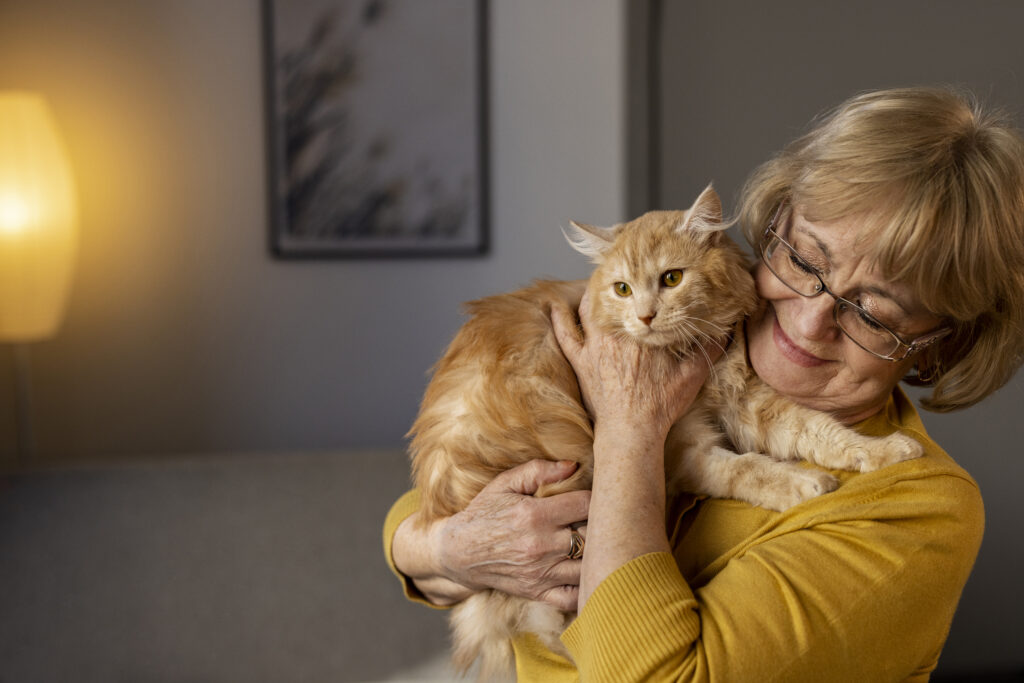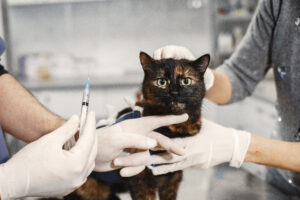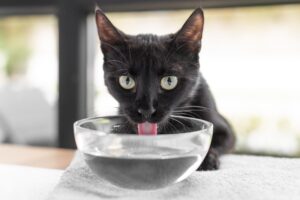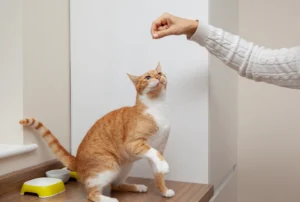Introduction: The Silent Crisis of Senior Cats for Adoption
Every day across the United States, thousands of senior cats for adoption wait patiently in shelters, often overlooked as potential adopters pass by their cages in search of kittens or younger cats. These wise, gentle souls—typically aged 7 years and older—face some of the longest wait times and highest euthanasia rates in animal shelters nationwide. While kittens often find homes within days, elderly cats for adoption may wait months or even years for someone to recognize their value.
According to the ASPCA, senior pets have a significantly lower adoption rate compared to their younger counterparts, with senior cats for adoption facing particularly challenging odds. This heartbreaking reality stems from several misconceptions and practical concerns that potential adopters have about bringing home an older cat for adoption. However, what many people don’t realize is that adopting an old cat can be one of the most rewarding experiences for both the human and the feline.
As someone who has dedicated years to animal welfare and personally experienced the joy of senior cat adoption, I want to share not only why these magnificent companions are so often passed over, but also why they might be the perfect addition to your family. In this comprehensive guide, we’ll explore the challenges facing senior cats for adoption, debunk common myths, and highlight the incredible benefits of bringing home an older feline friend.
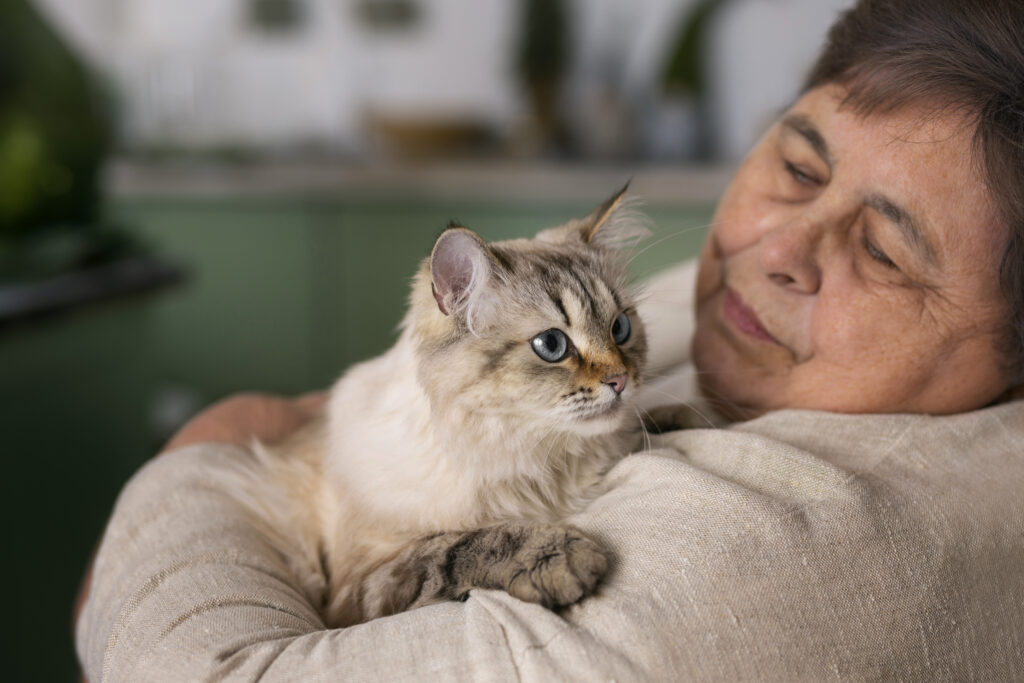
The 4 Heartbreaking Reasons Senior Cats Are Overlooked
1. The “Limited Time” Misconception
Perhaps the most common reason people hesitate when considering senior cats for adoption is the perception of limited time together. Many potential adopters worry that bringing home an elderly cat for adoption means signing up for heartbreak sooner rather than later. They fear forming a bond with a pet only to lose them within a short period.
While it’s true that senior cats for adoption have fewer years ahead of them compared to kittens, this perceived disadvantage overlooks several important realities:
- Domestic cats regularly live into their late teens and even early twenties with proper care
- Senior cats for adoption are typically classified as 7+ years old, meaning they could have 10+ years of life remaining
- The quality of time spent together often matters more than the quantity
- Many senior cat rescue organizations can provide detailed health information, giving you a clearer picture of your potential companion’s needs and prognosis
As Lisa, a volunteer at a senior cat adoption center in Portland explains, “People come in wanting 15+ years with their new pet, but they don’t realize that the average cat owner only keeps their pet for 7-9 years anyway due to changing life circumstances. Senior cats for adoption could easily be with you that entire time.”
The reality is that no adoption comes with a guaranteed timeframe. Young cats can develop unexpected health issues, and senior cats for adoption often surprise everyone with their resilience and longevity when placed in loving homes.
2. Perceived Medical Costs and Health Concerns
Another significant barrier preventing older cats for adoption from finding homes is the concern about medical expenses. Many potential adopters worry that choosing senior cats for adoption means signing up for extensive veterinary bills and daily medication routines.
While senior cats for adoption may indeed have more health considerations than kittens, this concern often proves overblown for several reasons:
- Many senior cat adoption programs offer medical screening before adoption, identifying any existing conditions
- Numerous senior cat rescue organizations provide continued medical support or discounted services after adoption
- Kittens and young cats often require more immediate medical attention (vaccinations, spaying/neutering, unexpected illnesses)
- The temperament and behavior of senior cats for adoption are already established, preventing behavioral problems that often lead to veterinary visits
- Many senior pet adoption programs include initial veterinary care in the adoption fee
Dr. James Morgan, a veterinarian specializing in geriatric feline care at the National Senior Cat Adoption Center, notes: “I often see adopters surprised by how manageable their senior cats for adoption are from a medical perspective. Many seniors need nothing more than regular checkups and perhaps dental care—sometimes less intervention than younger cats with unpredictable health trajectories.”
It’s worth noting that many senior cat rescue groups specifically fundraise to cover medical costs for their adoptable seniors, making senior cats for adoption more affordable than many people realize.
3. The ‘Bonding’ Misconception
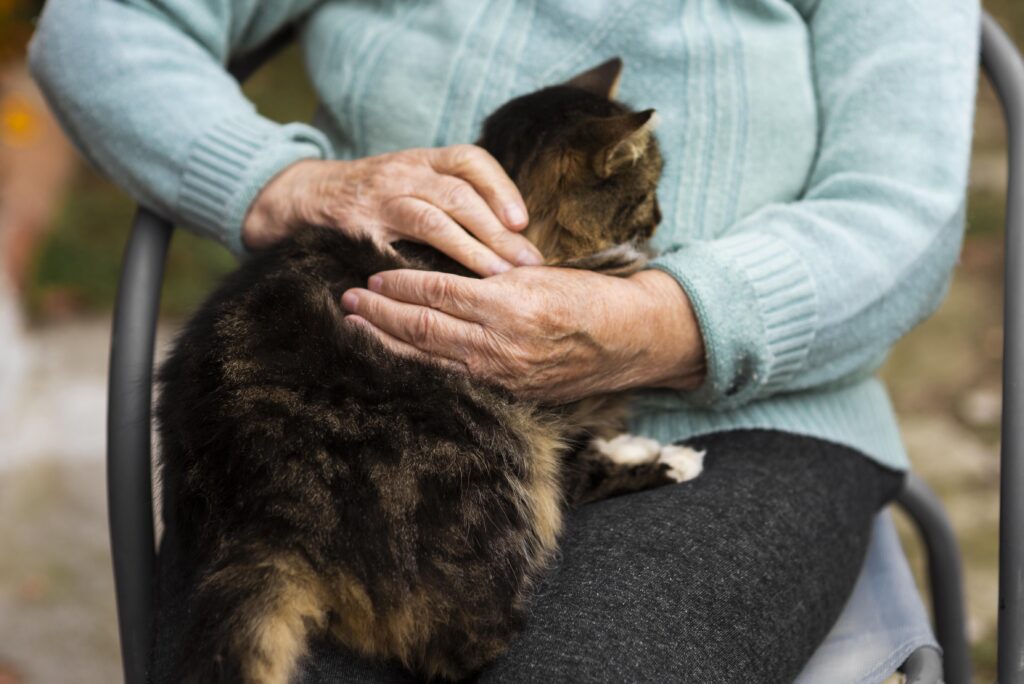
A particularly persistent myth surrounding senior cats for adoption is that older cats cannot form strong bonds with new owners. Some potential adopters believe that elderly cats for adoption are set in their ways and incapable of developing the same attachments as kittens or younger cats.
This misconception couldn’t be further from the truth. In fact, many senior cat adoption counselors report that older cats often form deeper, more appreciative bonds with their adopters. Here’s why:
- Senior cats for adoption have often experienced loss or abandonment, making them especially grateful for security and affection
- Older cats generally have fully developed personalities, allowing for better matching with appropriate homes
- Many senior cats for adoption have previously lived with families and understand human companionship
- Older cats for adoption typically require less adjustment time compared to kittens or young adults
- The maturity of senior cats for adoption often translates to more meaningful interactions with their humans
Sarah Henderson, who operates a senior cat rescue in Chicago, shares: “We consistently hear from adopters who are amazed at how quickly their senior cats for adoption settled in and bonded with them. One woman told me her 12-year-old adopted cat follows her from room to room and sleeps on her pillow every night—something she never expected from an older cat.”
The reality is that senior cats for adoption often show extraordinary capacity for forming new bonds. Their life experience can make them especially appreciative of second chances and stable homes.
4. The Allure of Kittens vs. Senior Cat Adoption
Let’s address the elephant in the room: kittens are undeniably cute. Their playful antics, tiny features, and boundless energy make them irresistible to many potential adopters. In comparison, senior cats for adoption may seem less exciting at first glance.
This preference for youth over experience creates a significant hurdle for senior cats for adoption, particularly during “kitten season” when shelters are flooded with baby cats. However, this surface-level comparison fails to consider many practical and emotional factors:
- Kittens require significant time, training, and supervision that many busy households cannot realistically provide
- Senior cats for adoption come with established personalities, allowing for better matching with your lifestyle
- The energy requirements of kittens may not align with many adopters’ actual desires for a pet
- Adopting an older cat provides the satisfaction of giving a second chance to a deserving animal
- Senior cats for adoption often settle into new routines more quickly than younger counterparts
Mark Wilson, director of a network of senior cat adoption near me programs in the Northeast, observes: “We often see adopters return kittens because they didn’t realize how much work they would be. The same rarely happens with our senior cats for adoption. People who adopt seniors usually know exactly what they’re getting and are thrilled with their choice.”
Why Adopt a Senior Cat: The Overlooked Benefits
Now that we’ve examined why senior cats for adoption face challenges finding homes, let’s explore the remarkable and often unexpected benefits of adopting an old cat. These advantages make senior cats for adoption the perfect choice for many households.
Immediate Companionship
Unlike kittens who need months to mature and settle down, senior cats for adoption typically provide immediate companionship. Their mature personalities mean they’re ready for quality bonding time from day one. When you adopt an older cat, you’re bringing home a companion who already understands how to live harmoniously with humans.
Many senior cats for adoption have spent years perfecting the art of being perfect pets. They know how to use litter boxes, understand household routines, and have mastered the delicate balance of providing affection while respecting personal space. This immediate compatibility makes senior cat adoption particularly appealing for busy professionals, seniors, or anyone who wants a companion without extensive training requirements.
Known Personality and Perfect Matching
One of the most significant older cat adoption benefits is the ability to match personalities accurately. When you visit a senior cat rescue or browse old cats for adoption near me, what you see is genuinely what you get.
Unlike kittens whose personalities are still developing, senior cats for adoption have established temperaments. This transparency allows adoption counselors to make precise matches between cats and potential homes. Whether you need a lap cat, an independent companion, or something in between, the personality of senior cats for adoption is already evident.
Maria Chen, adoption coordinator at a senior cat adoption center in Texas, explains: “I can tell you with confidence which of our senior cats for adoption will thrive in a quiet home versus a busy family environment. That kind of matching is impossible with kittens, whose personalities are still forming.”
The Gratitude Factor
Perhaps the most emotionally rewarding aspect of senior cat adoption is what many adopters describe as the “gratitude factor.” Many senior cats for adoption seem to understand they’ve been given a second chance and show remarkable appreciation for their new homes.
Jennifer Adams, who adopted a 12-year-old tabby from a senior cat rescue in Florida, shares: “There’s something special about the way Maya looks at me. It’s like she knows I chose her when others passed her by. The bond we formed was almost immediate—something I never experienced with younger cats.”
This phenomenon is frequently reported by those who adopt senior cats. Whether it’s their life experience or intuitive understanding, many elderly cats for adoption show extraordinary affection and loyalty to those who welcome them into their homes.
Lower Energy Requirements
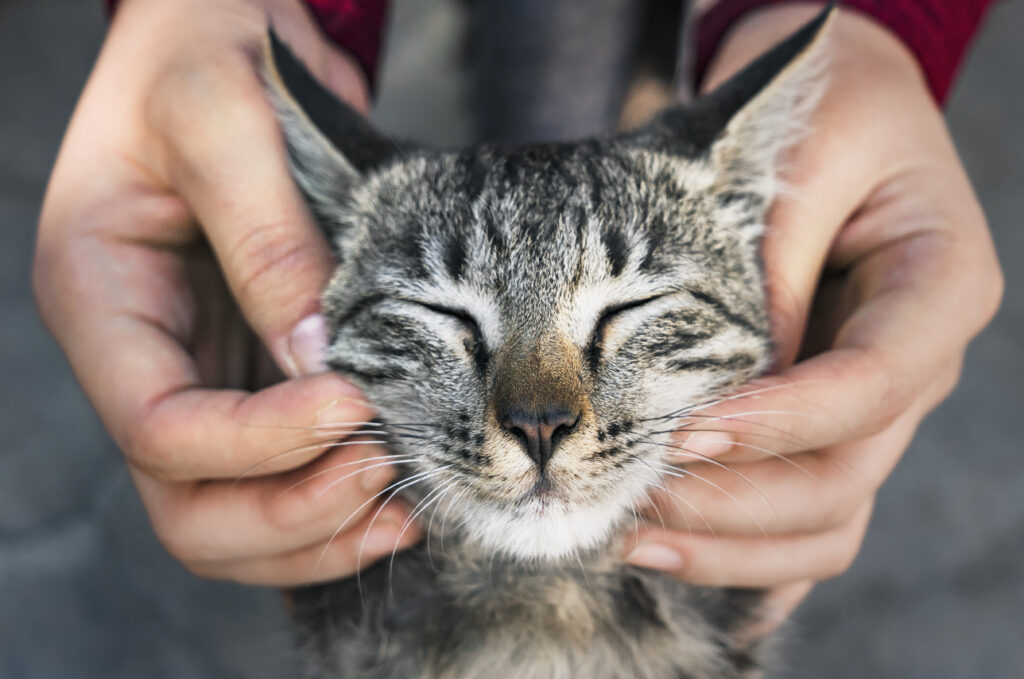
For many households, the mellower nature of senior cats for adoption perfectly aligns with their lifestyle. While kittens demand constant attention and play, senior cats for adoption generally have more moderate energy levels and self-entertainment skills.
This doesn’t mean senior cats for adoption don’t play or show spunky personality—many do! However, their play tends to be more purposeful and less frantic than their younger counterparts. Many senior cats for adoption enjoy interactive play sessions but are equally content with quiet companionship.
This balanced energy makes senior cats for adoption ideal for:
- Working professionals
- Seniors and retirees
- Families with older children
- Those with physical limitations
- Anyone seeking a more relaxed pet experience
How to Find Senior Cats for Adoption Near Me
If the advantages of adopting an older cat have convinced you to consider senior cats for adoption, you might be wondering where to find these wonderful companions. Fortunately, numerous resources specialize in helping senior cats need homes:
Dedicated Senior Cat Rescue Organizations
Across the United States, dedicated senior cat rescue organizations focus exclusively on helping elderly cats for adoption. These specialized groups understand the unique needs of older felines and often provide exceptional support systems for adopters.
Some notable national senior cat rescue organizations include:
- The Senior Cat Project
- Meezer Senior Cat Rescue
- Cats Living Longer Lives (CL3)
- Golden Years Cat Sanctuary
These organizations often maintain websites listing available senior cats for adoption and may facilitate adoptions across state lines for the right match.
Local Animal Shelters and Humane Societies
Your local animal shelter or humane society likely has numerous senior cats for adoption waiting for homes. While these organizations house cats of all ages, many run special programs specifically for rehoming older cats.
Benefits of adopting from these facilities often include:
- Lower adoption fees for senior cats for adoption
- Pre-adoption veterinary screening
- Post-adoption support resources
- Training and behavioral support if needed
Many shelters also maintain special “senior for senior” programs that match older adopters with elderly cats for adoption at reduced or waived fees.
Online Resources for Senior Cat Adoption
Several online platforms specialize in connecting potential adopters with senior cats for adoption:
- Petfinder.com (allows filtering specifically for senior pets)
- Adopt-a-Pet.com
- Rescueme.org
- SeniorPetsForSeniors.org
These websites allow you to search for senior cats for adoption near me using your zip code, viewing photos and reading profiles of available cats in your area.
Foster-to-Adopt Programs
For those hesitant about committing immediately to senior cat adoption, many organizations offer foster-to-adopt programs. These arrangements allow you to temporarily welcome a senior cat into your home, ensuring compatibility before finalizing the adoption.
Foster-to-adopt programs are particularly beneficial for senior cats for adoption as they:
- Reduce shelter stress for older cats
- Allow cats to show their true personalities in home environments
- Give potential adopters realistic expectations
- Provide support during the transition period
Preparing Your Home for a Senior Cat
Once you’ve decided to pursue senior cat adoption, preparing your home appropriately will help ensure a smooth transition. Senior cats for adoption may have different needs than younger cats:
Accessibility Considerations
Senior cats for adoption sometimes face mobility challenges that require minor home modifications:
- Consider providing ramps or steps to favorite perches
- Ensure litter boxes have low sides for easy entry and exit
- Place food, water, and litter in easily accessible locations
- Consider orthopedic beds designed for senior cats for adoption
- Maintain consistent home temperatures as older cats can be more sensitive to cold
Dietary Needs
Senior cats for adoption often have specific nutritional requirements:
- High-quality senior cat formulations support aging joints and organs
- Wet food options may be easier for senior cats for adoption with dental issues
- Multiple small feeding stations accommodate decreased mobility
- Always transition food gradually to prevent digestive upset
Creating Comfort Zones
Senior cats for adoption particularly appreciate quiet, comfortable spaces:
- Provide multiple soft resting areas throughout your home
- Include a heated bed option for cats with arthritis
- Create “safe zones” away from household hustle and bustle
- Consider nightlights for senior cats for adoption with diminished vision
Success Stories: Transformations Through Senior Cat Adoption
The true impact of choosing senior cats for adoption is best illustrated through success stories of cats who found their forever homes despite the odds.
Jasper’s Second Life
At 15 years old, Jasper’s chances of adoption seemed slim. After his owner passed away, this grey tabby landed at a busy urban shelter where kittens were adopted within days while he waited for months. When Maria finally brought him home, she expected a quiet, withdrawn companion.
“I was prepared to give him a comfortable retirement,” Maria explains. “Instead, I got a playful, affectionate room


